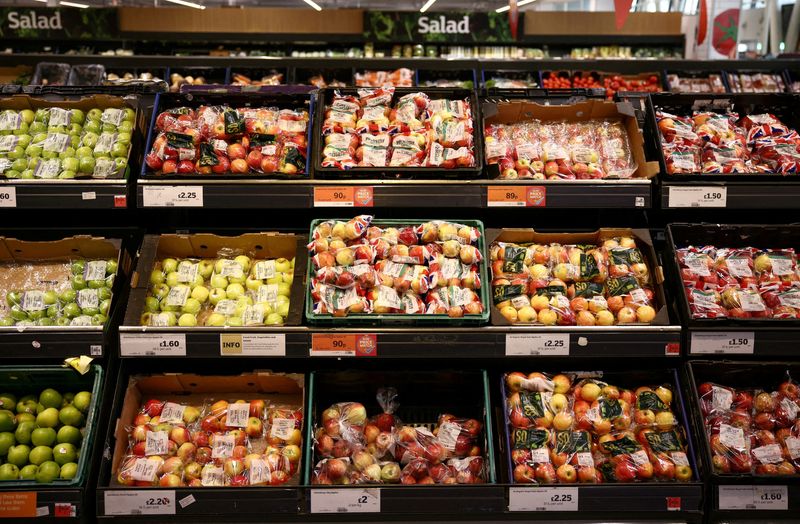Who is Kevin Hassett? Wolfe looks at the Trump ally tipped to become Fed Chair.
By David Milliken
LONDON (Reuters) - British food price inflation is likely to fall to around 10% later this year, but will need to drop further for overall consumer price inflation (CPI) to return to its 2% target, Bank of England (BoE) Chief Economist Huw Pill said on Monday.
Food and drink price inflation has risen faster than most other items since Russia invaded Ukraine last year, hitting 19.2% in March, its highest since 1977. In June it was 17.3%, almost 10 percentage points above overall CPI.
"Our expectation is that food price inflation will fall back to around 10% by the end of this year and then further next year. That's still not a very comfortable level," Pill told an online event hosted by Citizens Advice, a charity.
"Certainly for us when we're looking at trying to reduce the overall level of inflation down to our 2% target, having food price inflation running at 10% is not really compatible with that on a lasting basis," he added.
Last week the BoE raised its main interest rate to a 15-year high of 5.25%, its 14th consecutive rate rise as it battles the highest inflation of any major economy.
Pill's food price inflation estimate is in line with a prediction from the central bank's industry contacts which the BoE included in its quarterly forecasts last week. These showed CPI falling to 4.9% by the final three months of this year, with food price inflation accounting for more than a quarter of that.
Separately, Pill said he did not think it was useful to try to judge whether businesses or workers pushing for pay rises were more responsible for high inflation.
"I don't think it's the case that we should be pointing fingers or assigning blame to individual parts of the UK economy. The catalyst, the trigger for higher inflation in Britain was higher imported goods prices," he said.
Governor Andrew Bailey rebuked Pill in May for appearing insensitive to poorer Britons, after the chief economist said workers and businesses both needed to accept they had lost spending power.
The BoE, unlike other central banks, has so far seen little evidence of increased corporate profit margins.
